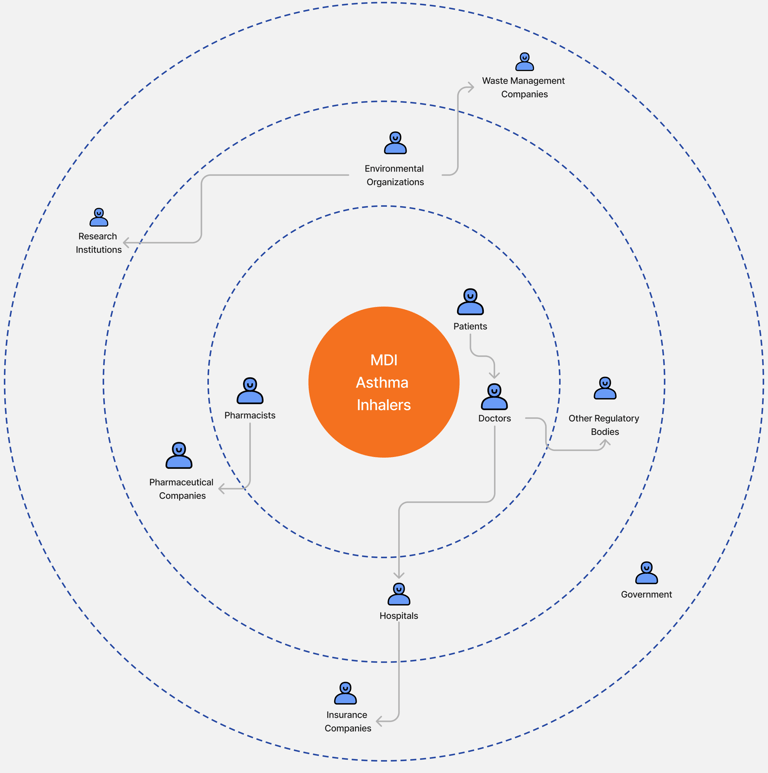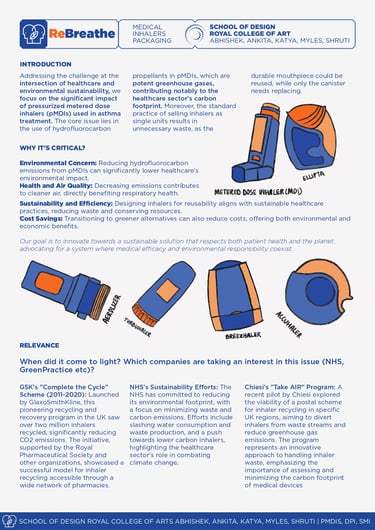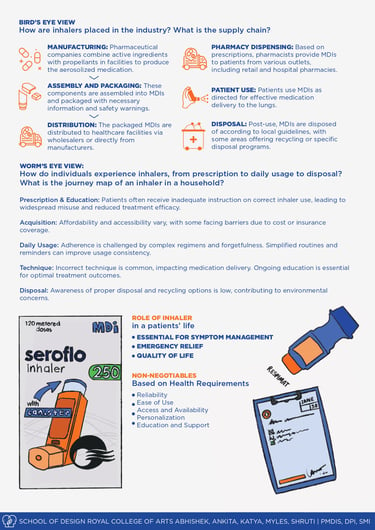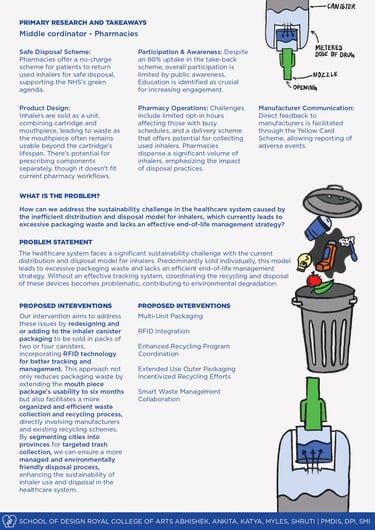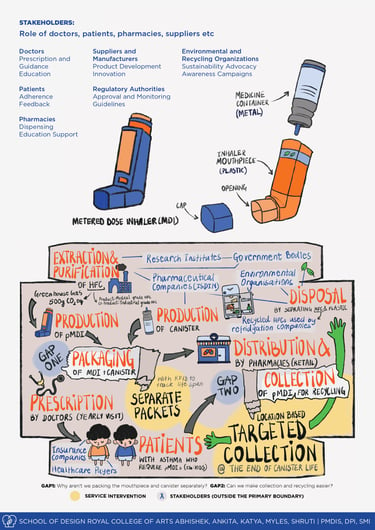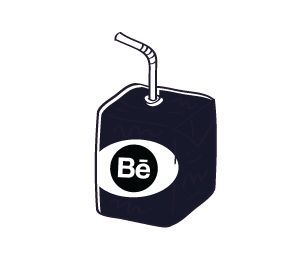ReBreathe: designing climate friendly inhalers
ReBreathe
Addressing the challenge at the intersection of healthcare and environmental sustainability, we focus on the significant impact of pressurised metered dose inhalers (pMDIs) used in asthma treatment.
Timeline: 2 months
Role (group of 5): Qualitative and Quantitative Research, Stakeholder Mapping, Impact Analysis, Service Design, Illustration
Tools: Figma, Adobe Illustrator
Problem statement:
Did you know that inhalers contribute to approximately 3% of the carbon emissions from the UK National Health Service (NHS)? These devices, particularly Metered Dose Inhalers (MDIs), contain harmful gases, making their safe disposal crucial for environmental protection.
Additionally, as they are predominantly sold individually, this model leads to excessive packaging waste and lacks an efficient end-of-life management strategy.
OVERVIEW
What is the challenge?
Goals:
To create a tracking system for coordinating the recycling and disposal of inhalers.
Redesigning the distribution and disposal of inhalers through the implementation of sustainable packaging.
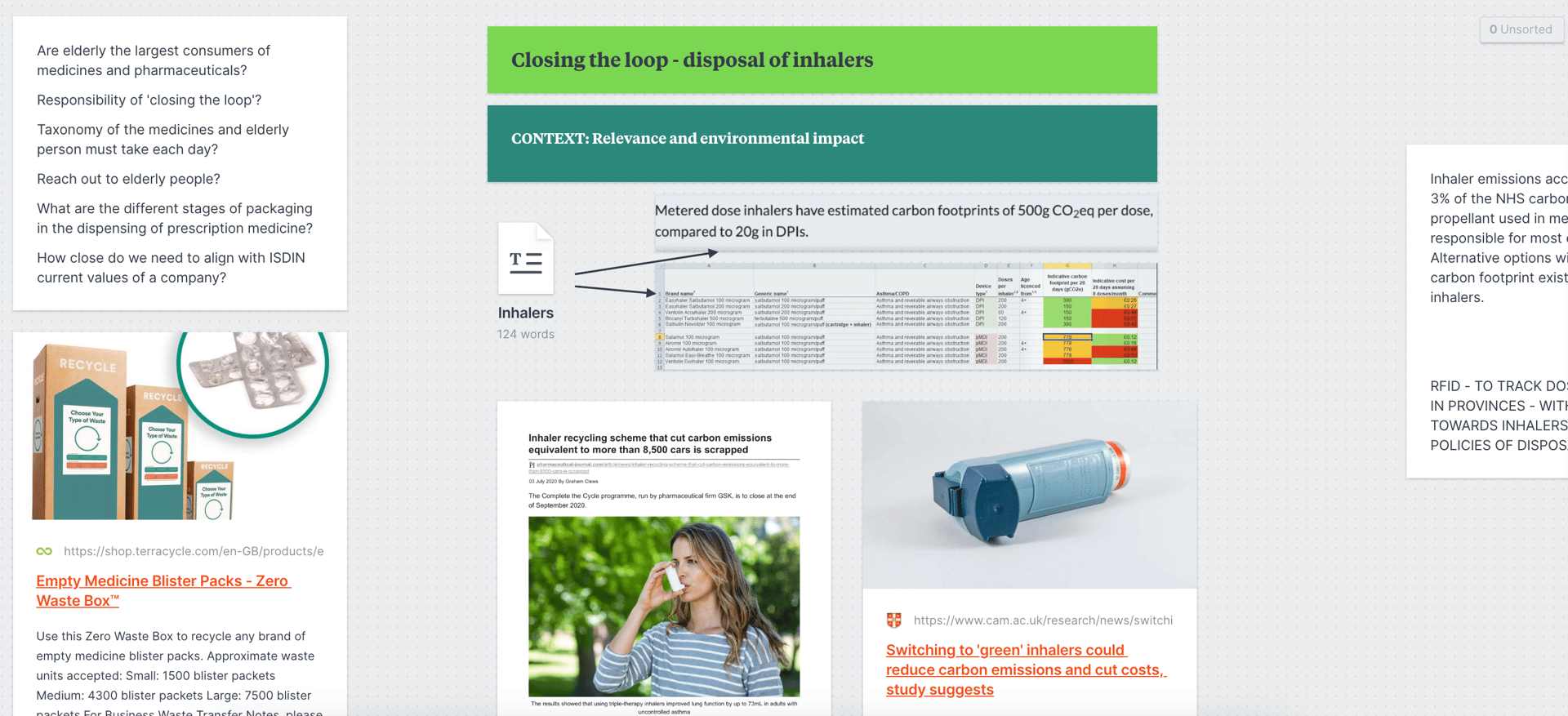
The healthcare system in the UK faces a significant sustainability challenge with the current distribution and disposal model for inhalers. Predominantly sold individually, this model leads to excessive packaging waste and lacks an efficient end-of-life management strategy. Without an effective tracking system, coordinating the recycling and disposal of these devices becomes problematic, contributing to environmental degradation.
SECONDARY RESEARCH
Medical packaging
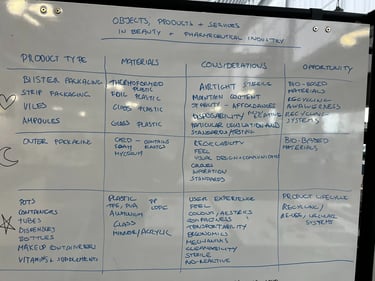
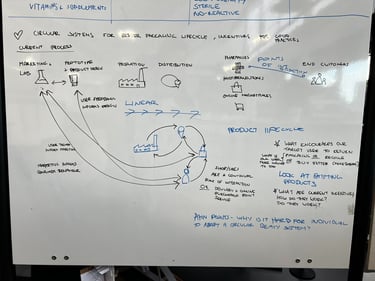


Interview with Abimbola Alaba, the director of Mitcham Healthcare Limited.
PRIMARY RESEARCH
Reality of the problem
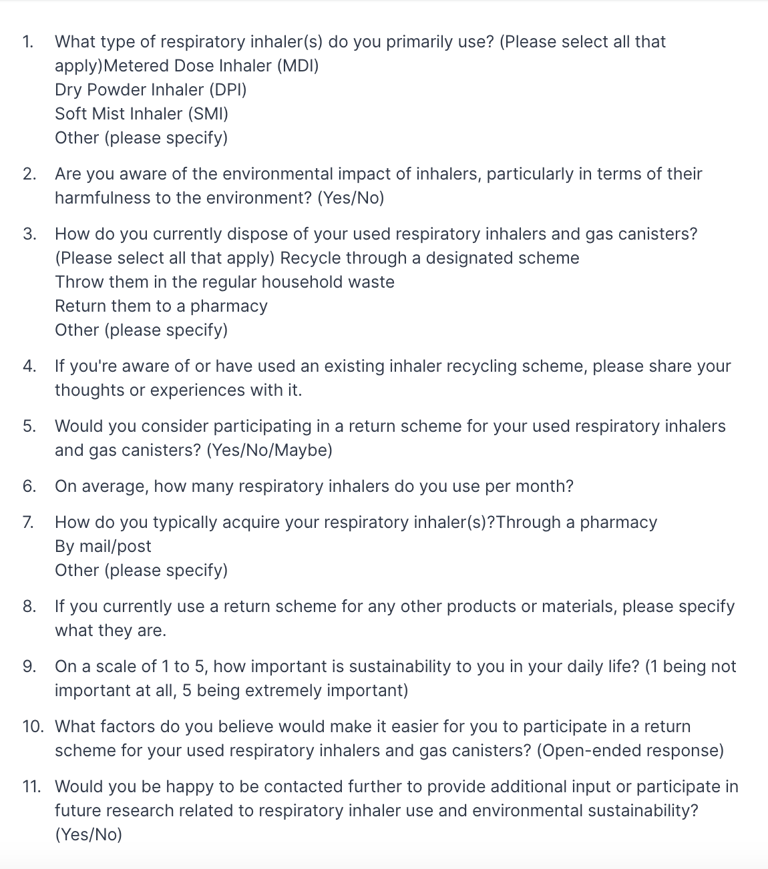

At the heart of this project are several key stakeholders who play critical roles in its success.
First and foremost we have the patients, individuals who rely on MDIs for managing respiratory conditions.
Next, we have healthcare providers, including pharmacists and doctors, who educate patients on proper inhaler usage and disposal.
Expertise and resources from pharmaceutical companies like ISDIN enable us to innovate in sustainable inhaler design and recycling solutions.
Government and regulatory bodies ensure compliance with environmental regulations and guide best practices.
Environmental organizations advocate for sustainable healthcare practices and collaborate on initiatives to reduce plastic waste.
Waste management companies handle the collection and recycling of inhaler waste.
Research institutions contribute valuable insights and expertise.
Insurance companies and healthcare payers have a vested interest in reducing costs associated with waste and promoting sustainable practices.
To solve our problem, we will engage our stakeholders through regular communication, collaboration, and consultation.
RESEARCH INSIGHTS
Stakeholder Mapping
